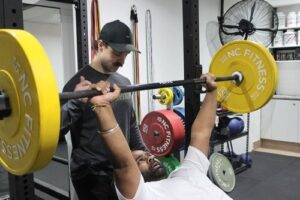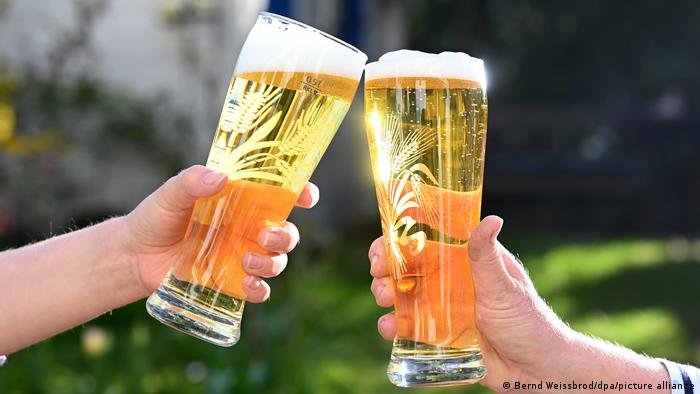
Beer Vs Gains

Well, it’s not entirely true. It’s not beer vs gains. You can still enjoy yourself. And according to the research, you could even enjoy a beer every day without any real impact on your body composition.
It sounds too good to be true, doesn’t it?
Okay, so let me explain.
A study by Molina-Hidalgo et al. wanted to find the effects of daily, low-moderate alcohol intake (1 drink for females, 2 for males) on training adaptions1 and body composition2 over a 10-week period, during a high-intensity circuit training program (HIIT).
What they found is that there was only slight difference in improvement with VO2max (indicator of cardiovascular endurance), hand grip strength, or jump height after the 10 weeks. In other words, the alcohol consumption didn’t seem to impact improvements in fitness too badly.
The issue with the above study is that there were a few limitations to the study design. These included important factors like participant group allocation, which was not randomised, meaning there was essentially no placebo effect. With no placebo effect, participants were more likely to be bias towards the training which can potentially skew the results (even if unintentionally).
The testing and training protocols weren’t relevant to each other as well. The participants were tested for VO2max, handgrip strength, squat jump height, countermovement jump height, and drop jump height, whereas the training protocol involved movements such as frontal planks, high knees up, TRX horizontal rows (which don’t have much carryover to the testing variables).
The upside to this study, which was presented in a different paper, showed no significant difference in fat mass loss and lean mass gain between non-controlled groups.
So in other words; alcohol consumption didn’t stop the individuals from dropping fat or putting on muscle.
Although the participants would have made progress regardless of the type of liquid intake (because they were new to a structured exercise program), the study showed that there would have been little difference between the two groups; alcohol and non-alcohol consumption.
In conclusion, it seems to be that low to moderate alcohol consumption won’t have a massive effect on your training and body composition but it’s still wise to be cautious of your alcohol intake.
Especially in large quantities, alcohol still has a negative impact on your general health, can impact protein synthesis (how muscles are formed), sleep quality, and a number of key hormones. It can also lead to bad decisions (e.g., overeating) and bad reliance.
Don’t be afraid to have a drink every now and again. It’s not likely to hurt your progress but if you are someone who may fall off the wagon when you drink, might be a better idea to limit the frequency and quantity.
Leave a Replay
Key Points
-
Low Effect on Progress
Slight effects were found on training adaptations and body composition over a 10 week training period
-
Alcohol Does Have An Effect
Alcohol still has an effect on other health qualities such as general health and sleep quality.
-
Limit Alcohol Consumption
In all, consuming alcohol in small quantities every now and again won't harm your muscle hypertrophy results, but can impact other areas of your health.

